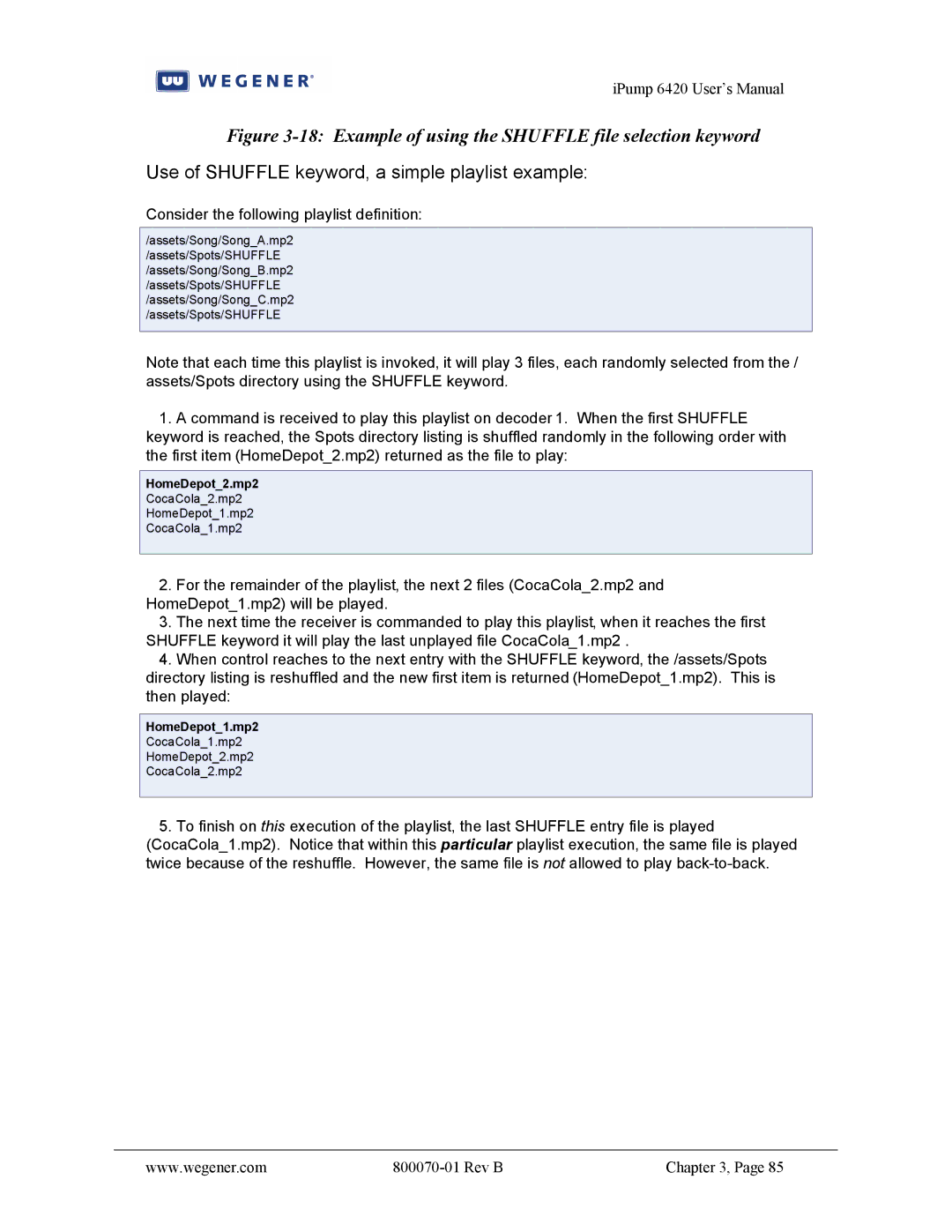
iPump 6420 User’s Manual
Figure 3-18: Example of using the SHUFFLE file selection keyword
Use of SHUFFLE keyword, a simple playlist example:
Consider the following playlist definition:
/assets/Song/Song_A.mp2 /assets/Spots/SHUFFLE /assets/Song/Song_B.mp2 /assets/Spots/SHUFFLE /assets/Song/Song_C.mp2 /assets/Spots/SHUFFLE
Note that each time this playlist is invoked, it will play 3 files, each randomly selected from the / assets/Spots directory using the SHUFFLE keyword.
1.A command is received to play this playlist on decoder 1. When the first SHUFFLE keyword is reached, the Spots directory listing is shuffled randomly in the following order with the first item (HomeDepot_2.mp2) returned as the file to play:
HomeDepot_2.mp2
CocaCola_2.mp2
HomeDepot_1.mp2
CocaCola_1.mp2
2.For the remainder of the playlist, the next 2 files (CocaCola_2.mp2 and HomeDepot_1.mp2) will be played.
3.The next time the receiver is commanded to play this playlist, when it reaches the first SHUFFLE keyword it will play the last unplayed file CocaCola_1.mp2 .
4.When control reaches to the next entry with the SHUFFLE keyword, the /assets/Spots directory listing is reshuffled and the new first item is returned (HomeDepot_1.mp2). This is then played:
HomeDepot_1.mp2
CocaCola_1.mp2
HomeDepot_2.mp2
CocaCola_2.mp2
5. To finish on this execution of the playlist, the last SHUFFLE entry file is played (CocaCola_1.mp2). Notice that within this particular playlist execution, the same file is played twice because of the reshuffle. However, the same file is not allowed to play
www.wegener.com |
| Chapter 3, Page 85 |
